Kidnap, smuggling, and rigged elections: 5 allegations by Georgia’s former security chief

A former deputy director of Georgia’s security service has made a series of serious accusations against the government in recent months, ranging from the kidnapping of a political activist to setting up a system to smuggle goods over the Russian-Georgian border. We’ve rounded up five of his most provocative allegations below.
Around midnight on 15 July, police arrested the former deputy director of the State Security Service of Georgia (SSG), Soso (Ioseb) Gogashvili, raiding his house.
Facing up to seven years in prison on charges of leaking state secrets and illegally possessing firearms, Gogashvili has levelled a series of accusations against his former employers: the SSG and the Georgian government.
Soso Gogashvili was appointed deputy director of the SSG at its foundation as a standalone agency, months after it split from the Interior Ministry in 2014. He served under SSG director Vakhtang Gomelauri, who has been Georgia’s minister of internal affairs, since September 2019.
The former deputy director of the SSG first became a vocal critic of the government in 2020 and has remained outspoken following his imprisonment, but the allegations he has levied against the authorities since his arrest have been larger and louder.
‘I am your headache that is exposing your dirt’, Gogashvili wrote to the authorities from prison on 16 August.
Below are some of Gogashvili’s most inflammatory allegations against the government.
Azerbaijani journalist kidnapped ‘on Ivanishvili’s orders’
On 26 July, Gogashvili accused former Georgian Prime Minister Bidzina Ivanishvili of ordering the kidnapping of the Azerbaijani journalist Afgan Mukhtarli in Tbilisi in 2017.
Mukhtarli, a prominent critic of the Azerbaijani government, disappeared from Tbilisi on 29 May 2017, only to resurface in Azerbaijan where he was charged with smuggling money. Freed from prison in March 2020 following international pressure, Mukhtarli insisted his abductors spoke Georgian and that Ivanishvili was behind his kidnapping, acting on Azerbaijani President Ilham Aliyev’s request.
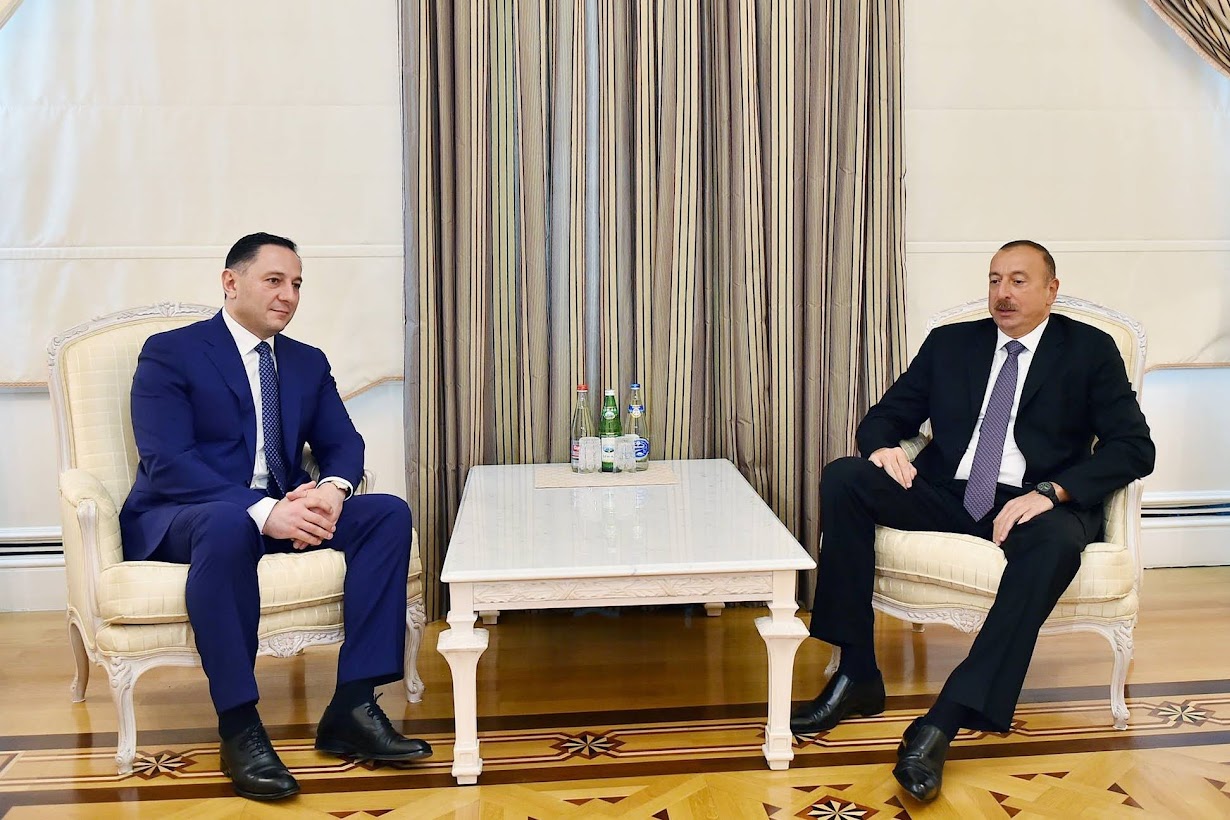
In July, Gogashvili went on to allege that CCTV footage of Mukhtarli’s abduction was ‘deleted’ by the Operative-Technical Agency of the SSG. In a later statement, Gogashvili also accused the Agency of large-scale surveillance targeting government critics and reporting directly to Ivanishvili.
Less than a month after Mukhtarli’s abduction, the Organised Crime and Corruption Reporting Project (OCCRP) concluded that footage disseminated by the Georgian authorities of Mukhtarli’s abduction that was used to challenge his claims was ‘doctored’.
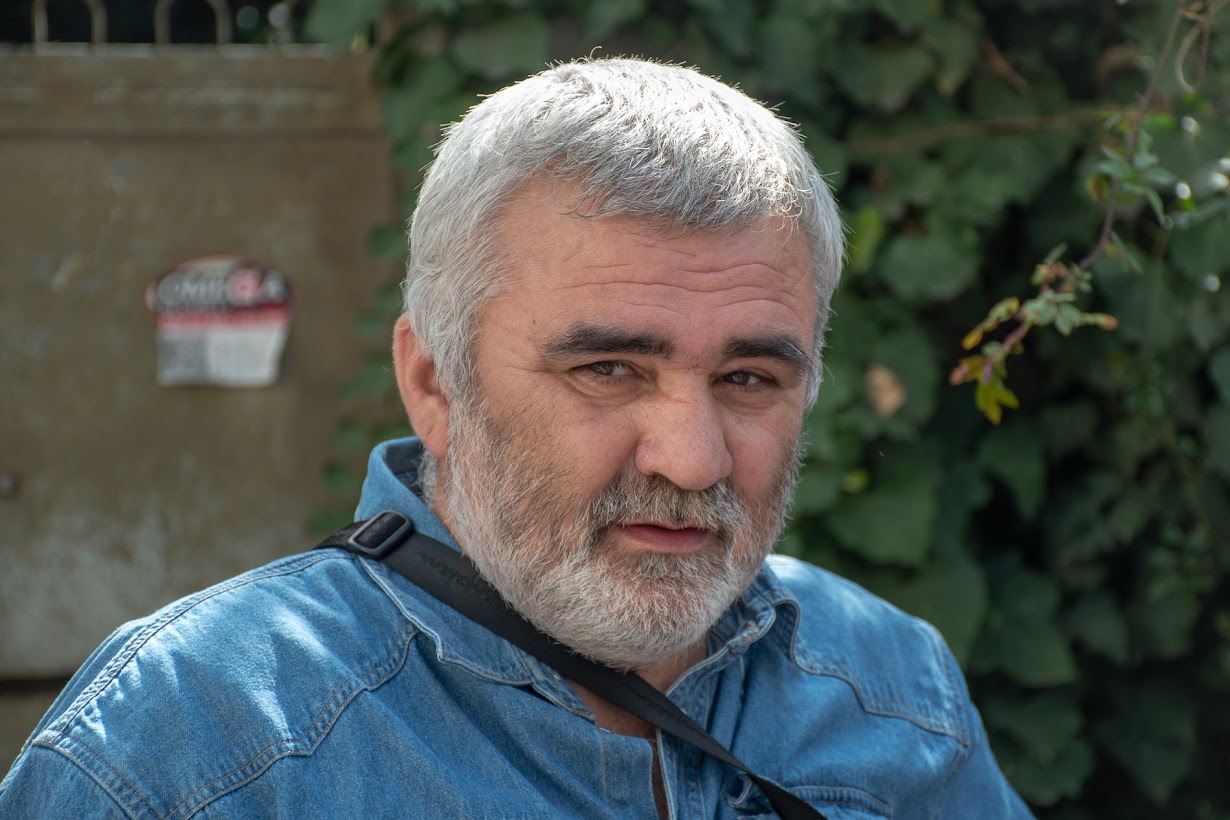
When recommending, in June, that the EU consider levying personal sanctions against Bidzina Ivanishvili, the European Parliament explicitly cited the uninvestigated allegations that the Georgian authorities were been behind the kidnapping of Afgan Mukhtarli.
Following Gogashvili’s statement on 26 July, Mukhtarli demanded that Gogashvili be questioned as part of the investigation into his case. The Georgian Prosecutor’s Office have remained silent on this matter.
Talking to the minister of internal affairs in a prison shower room
On 11 August, Gogashvili claimed that two weeks earlier, the staff of the 12th Prison in Rustavi had escorted him to the shower hall and given him a mobile phone. On the other end of the line, he said, was his former boss at the SSG and current minister of internal affairs, Vakhtang Gomelauri.
Gogashvili alleged Gomelauri threatened him and his family to make him retract his allegations.
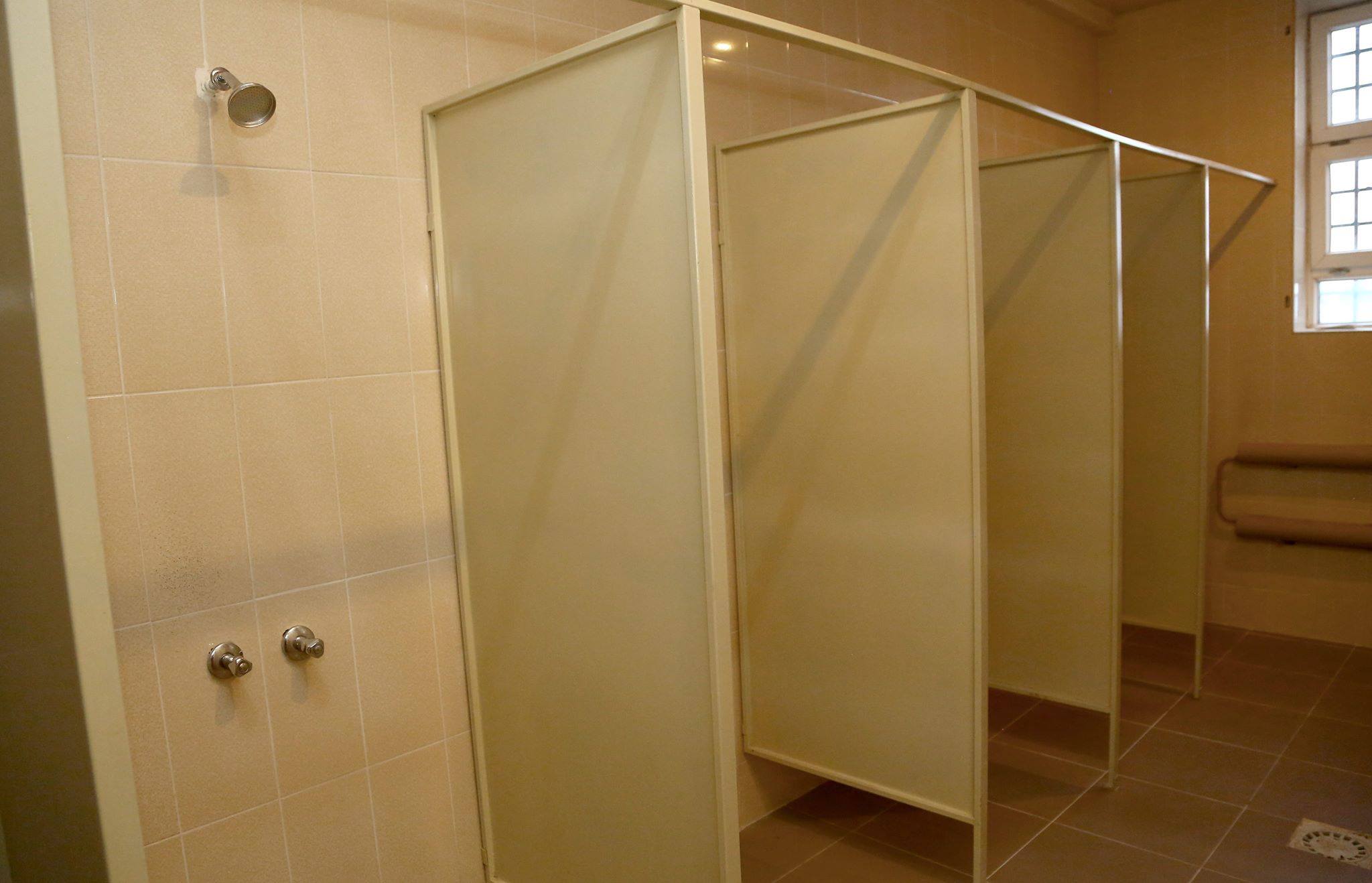
He claims outspoken members of his family were ‘illegally’ allowed to visit him in prison so that he could persuade them to go silent, and that he had talked with Gomelauri three additional times after 28 July.
‘[Gomelauri] passed on Bidzina Ivanishvili’s message that I had crossed red lines and that if I didn’t keep quiet, they would destroy me and exterminate my family’, Gogashvili said on 17 August.
The penitentiary services later claimed that the security cameras that could prove or disprove that Gogashvili was transferred to the prison shower facilities at the claimed times were ‘out of order’, further raising public suspicion.
Georgian-Russian trafficking ‘system’
While in prison, Gogashvili accused the SSG and its current director, Grigol Liluashvili, of instructing the border patrol police to allow through specific illicit goods from Russia.
Gogashvili claimed a ‘safe system’ for smuggling cargo into Georgia was set up in 2016 under Ivanishvili’s direction. According to Gogashvili, he was involved in arranging a meeting the same year between his boss, then–SSG director Vakhtang Gomelauri, and Aleksander Bortnikov, the director of Russia’s Federal Security Service (FSB).
Gogashvili said that the two met at an FSB base in Vladikavkaz, the capital city of the Russian republic of North Ossetia, in 2016. The meeting allegedly lasted three hours as the Georgian and Russian sides agreed on ‘safe routes to smuggle illegal cargo’.
He added that Gomelauri and Bortnikov met again in December 2017 in Minsk, but he did not know what they discussed.
Gogashvili claims that, in addition to the SSG, Georgia’s Interior Ministry, Finance Ministry, and Ministry of Economy were involved in arranging the trafficking of goods.
The former security chief also claimed the Georgians agreed to grant citizenship to Russians recommended by the Russian authorities and to ‘illegally’ deport Russians in Georgia who were wanted by the Kremlin.
In an interview with opposition-leaning TV channel Pirveli, the former head of personal security for then-SSG director Gomelauri, Aleksandre Samkharadze, corroborated Gogashvili’s claim.
He alleged that in 2016, Gogashvili met FSB official Aleksey Sedov to arrange a meeting between Gomelauri and Bortnikov, and that Gomelauri hosted Sedov and another FSB official in Tbilisi.
Aleksey Sedov is head of the FSB’s Service for the Protection of the Constitutional System and the Fight against Terrorism, and is implicated in the poisoning of Russian opposition leader Aleksey Navalny.
Rigging elections with pardons and public servants
Hours before he was arrested, Gogashvili publicly accused the ruling party of rigging elections and leaked evidence of this to non-governmental groups and embassies in Tbilisi.
Days later, two large Tbilisi-based watchdog groups confirmed some of the allegations, citing ‘verified’ sections of the information provided by Gogashvili.
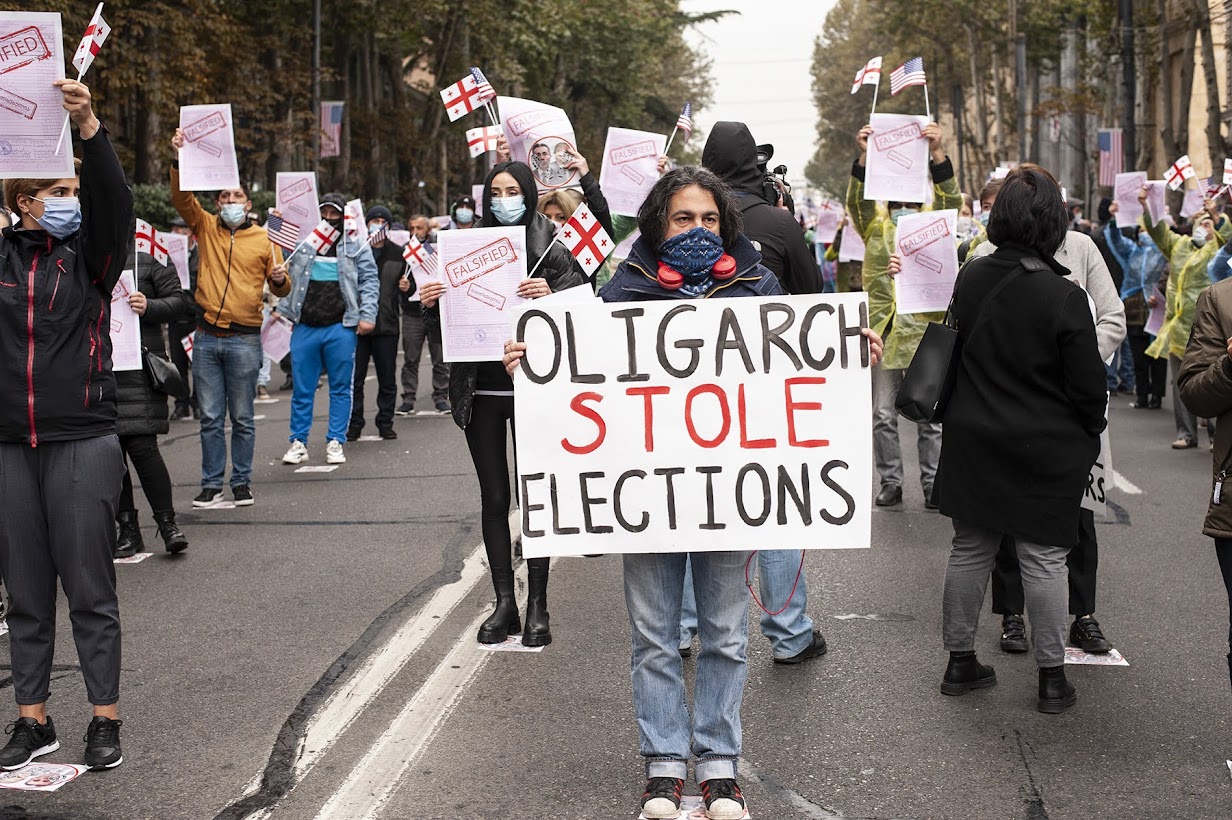
The allegations confirmed by the International Society for Fair Elections and Democracy (ISFED) and Transparency International (TI) Georgia included the Georgian authorities illegally offering pardons, lighter sentences, and opportunities to dodge military service in exchange for votes, and pressuring public employees to engage in campaigning in order to influence the outcome of the 2020 parliamentary elections and the 2021 local elections.
[Read more on OC Media: Watchdog backs ex-security chief’s claim of ‘large-scale electoral fraud’ in Georgia]
ISFED and Transparency International said the documents implicated Georgian Dream chair Irakli Kobakhidze and general secretary Kakha Kaladze, who is also mayor of Tbilisi, in involving law enforcement officers in the operations of Georgian Dream’s election headquarters.
No government investigation followed these revelations, apart from a probe targeting the whistleblower.
Government pressure on the judiciary
Gogashvili recently corroborated a claim by the former Supreme Court judge Beserion Alavidze that the Georgian judiciary was under political pressure.
Alavidze claimed on 17 September that the leadership at the High Council of Justice (HCoJ) of Georgia, the body in charge of regulating the judiciary, aggressively intervened in specific court cases demanding favourable rulings.
Local and international critics have long claimed the existence of an influential ‘clan’ of government-allied judges in the Georgian judiciary.
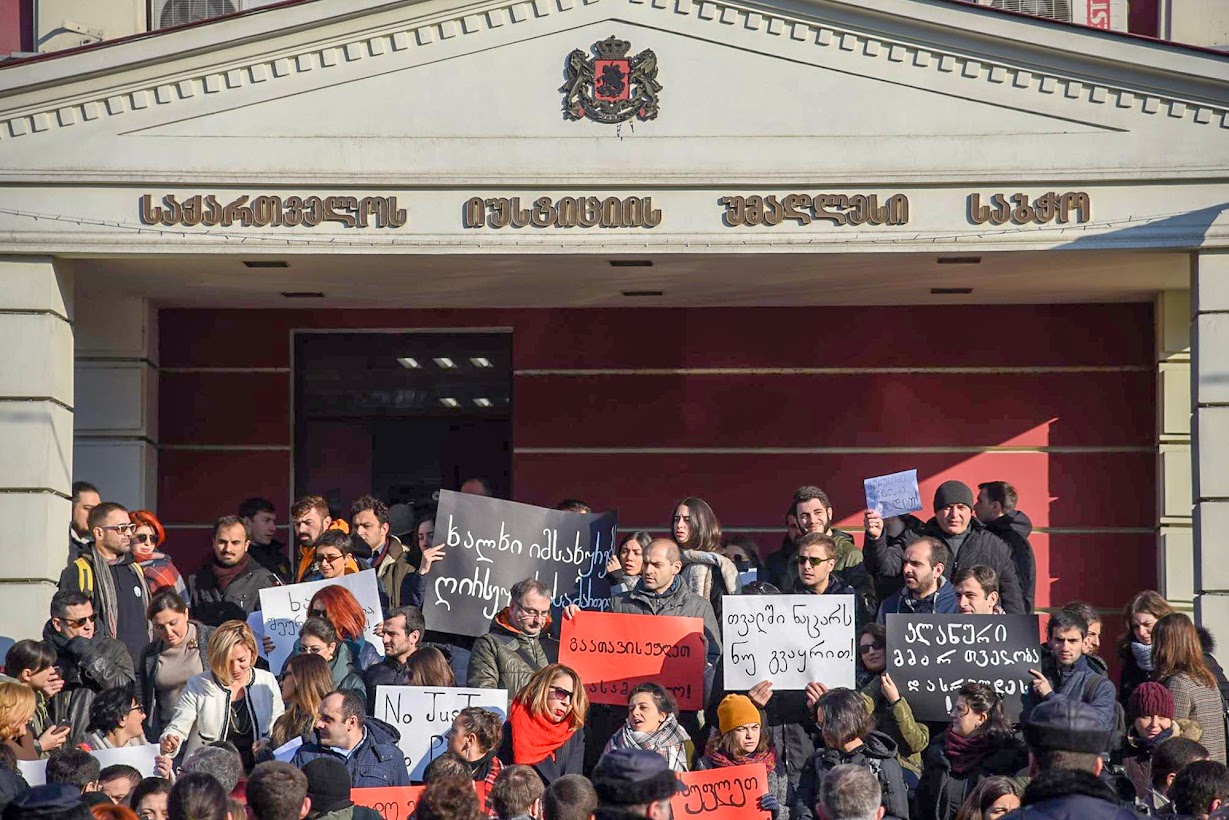
Alavidze was among nine judges who in mid-2019 allowed the transfer of opposition-leaning TV channel Rustavi 2 to its previous owner, triggering the exodus of the channel’s management and the launch of a new opposition channel, Mtavari.
Gogashvili alleged on 20 September that he, Mikheil Chinchaladze — an alleged member of the clan — and later, Bidzina Ivanishvili were involved in pressuring Alavidze to rule against Rustavi 2.
‘We [the SSG] received the assignment from Ivanishvili to offer Alavidze a stable job, financial bonuses, and [informal] immunity’, Gogashvili claimed.
According to him, an SSG agent pressured Alavidze, and Gogashvili received audio files of their interaction that he also shared with Chinchaladze.








